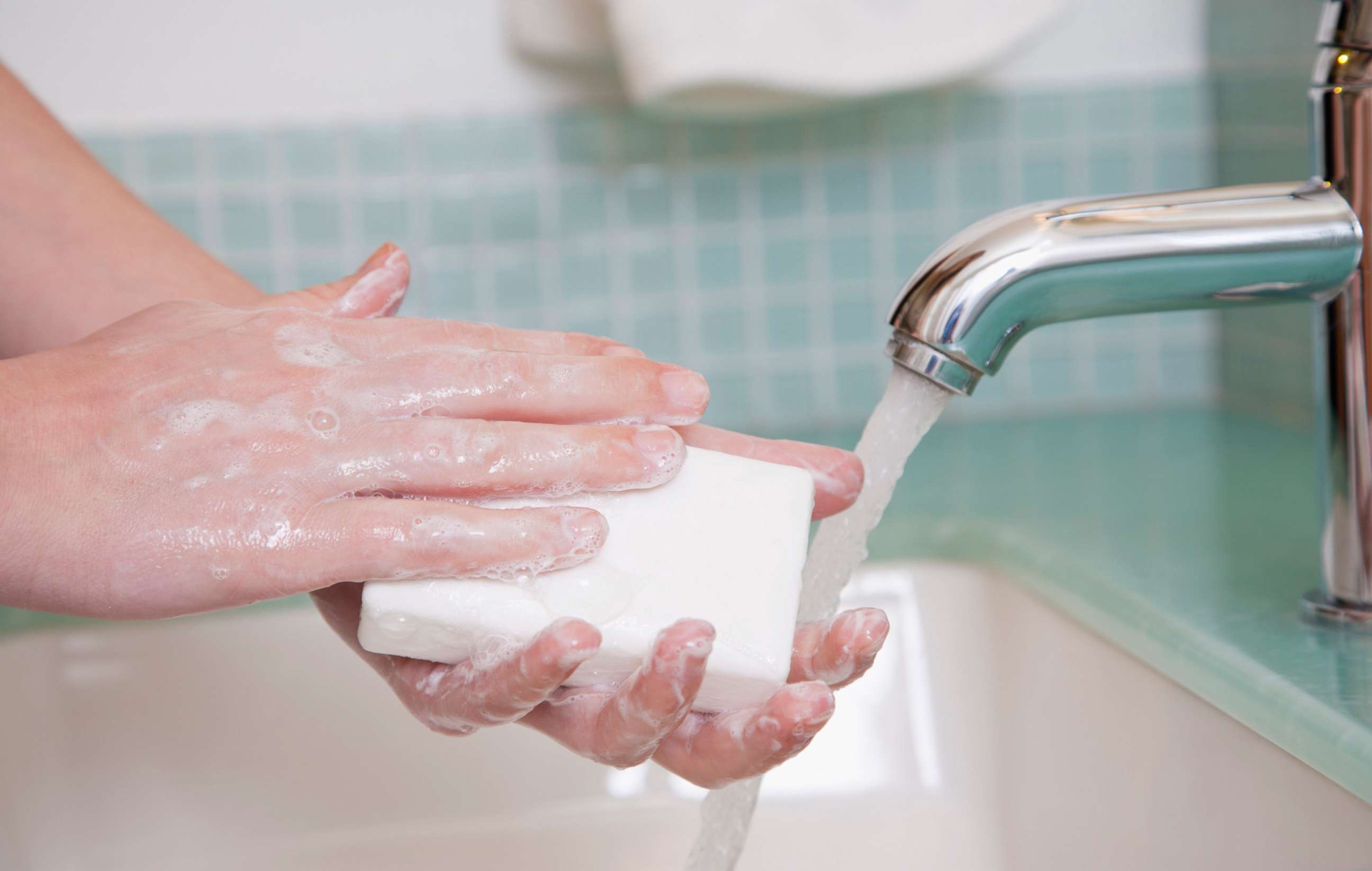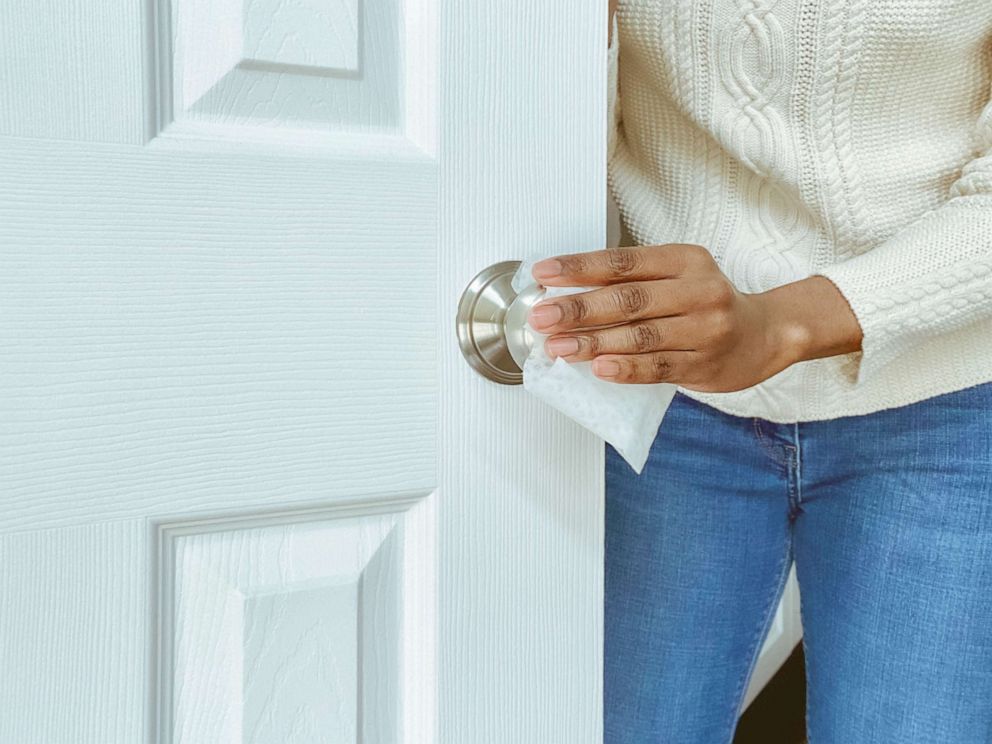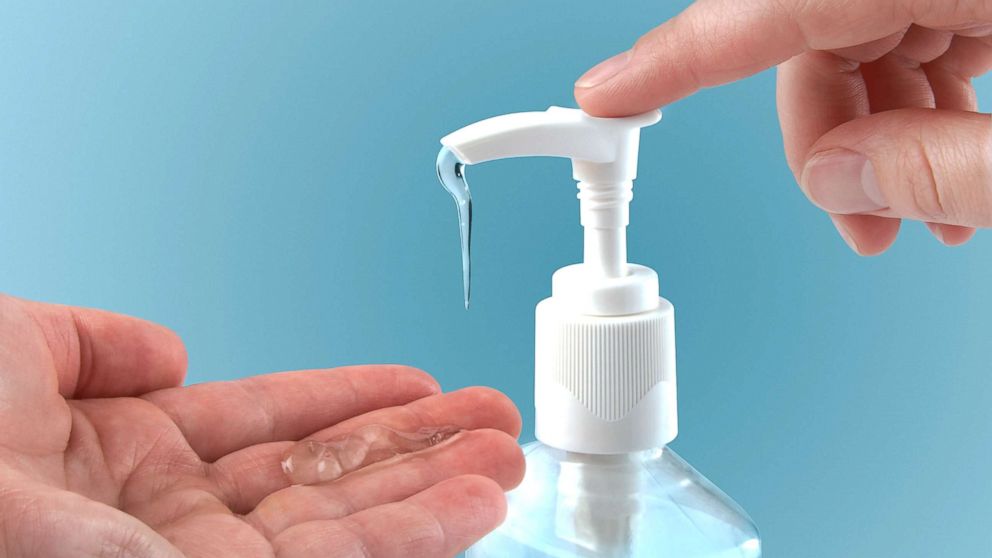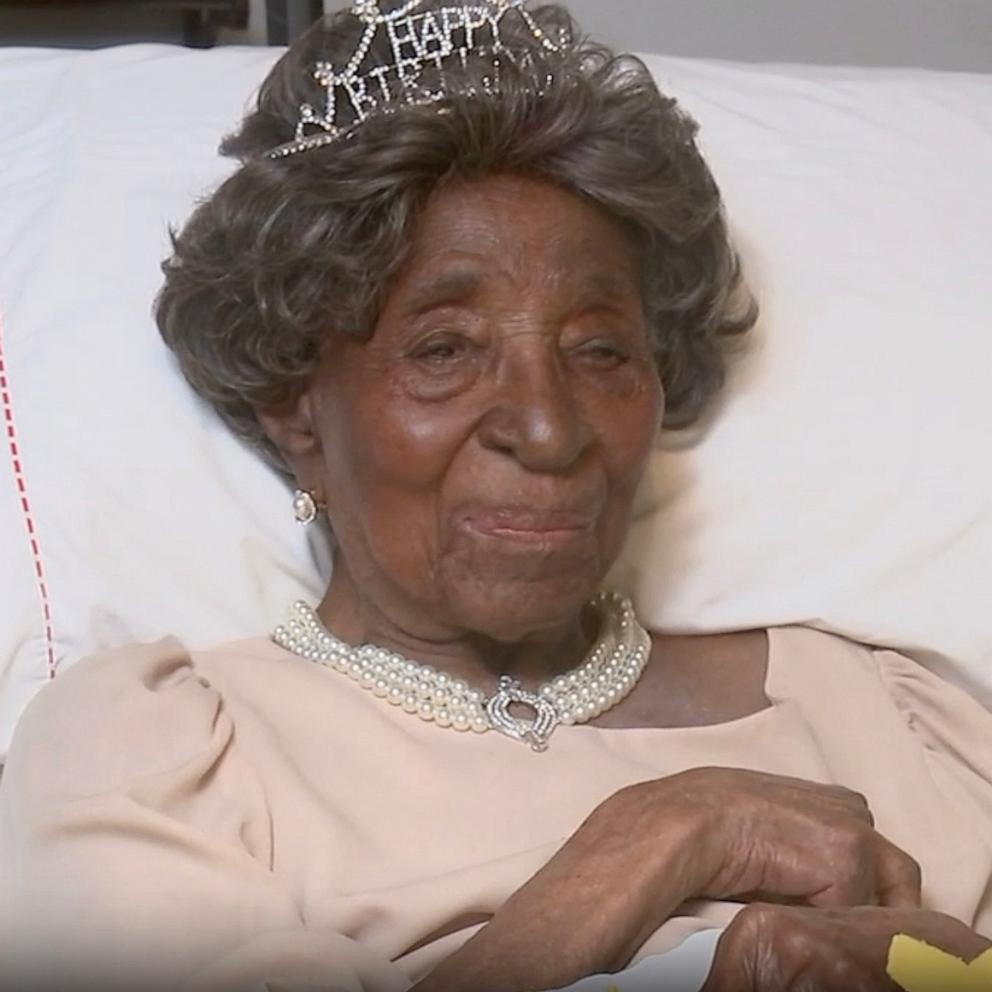How a virus researcher makes sure she doesn’t bring coronavirus into her home
After a trip to the grocery store these days, does re-entering your home leave you wondering what level of hazmat decontamination is necessary?
We asked Dr. Angela Rasmussen of Columbia University -- a researcher who studies viruses, including the one that causes COVID-19 -- how she disinfects when returning home from the store.
What She Does
1. Use hand sanitizer in the car
Rasmussen says the process starts when she gets into her car in the parking lot.
"I sit down I get my hand sanitizer out," she said, noting she spends about 20 seconds rubbing it around her palms and fingers. "I put some on the steering wheel, too," she added.
2. Avoid touching your face
Rasmussen says she’s really careful not to touch her face until she gets home.
3. Immediately wash hands at home

Once home, Rasmussen said she takes off her jacket, places her bags inside the door and immediately washes her hands.
She also takes off her shoes but adds, "that’s not corona related, it’s because outside is gross and I like to be barefoot in my house."
4. Put groceries away
Rasmussen said she puts her groceries away -- and then washes her hands again.
5. Clean your phone
If she used her phone while on her journey, Rasmussen said she wipes it down with a disinfectant wipe or alcohol.
"Phones are a potentially higher risk for fomite transmission, transmission from surfaces because they are in close proximity to both your hands and your nose and mouth."
After that, she said she feels fine going about her normal activities at home.
What She Doesn’t Do
Wash bags
Rasmussen said purses, jackets and fabric don’t usually need any special attention, adding "there’s very little evidence that virus transmits from clothing."
But she adds that if you think you or your jacket or bag has been in "direct contact with someone coughing or sneezing," a wash is a good idea.
Change or shower

She also doesn’t change her clothing or shower/wash her hair.
"The likelihood of having a significant amount of virus on your hair that could get on your face or in your mouth is very low," Rasmussen said.
But she adds, "If people feel more comfortable changing clothes or showering, they are welcome to do that, but the risk -- unless you had direct contact with someone pretty sick -- is pretty low."
Wipe door handles on every trip

She doesn’t wipe her door handles after every trip out, but she does clean them sporadically.
"Those are high-touch surfaces, so when we’re receiving deliveries, we have more opportunity from other people outside our home to be in contact with them," she said.
Dr. Rasmussen reminds people that this disease is primarily spread through respiratory droplets encountered through close, person-to-person contact, and she says germs on surfaces degrade and become less effective at infecting people over time.
"Viruses can’t reproduce without a host, so any virus on a surface is going to immediately begin to be less infectious," she said.
And while a study published in The New England Journal of Medicine says the disease can exist on surfaces like cardboard for 24 hours, and plastic and metal for 72 hours, the longer it’s outside the body, the less potent it becomes.
"Over that time, the amount of infectious virus decreases," she said.




